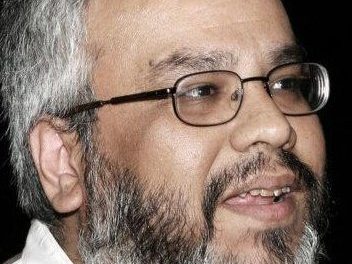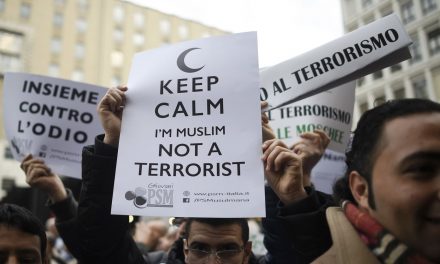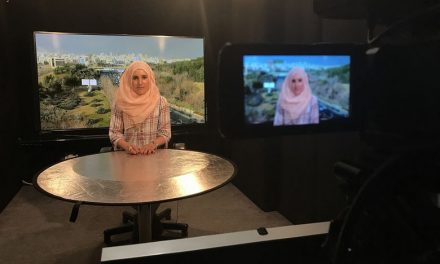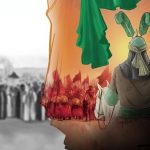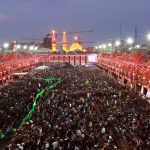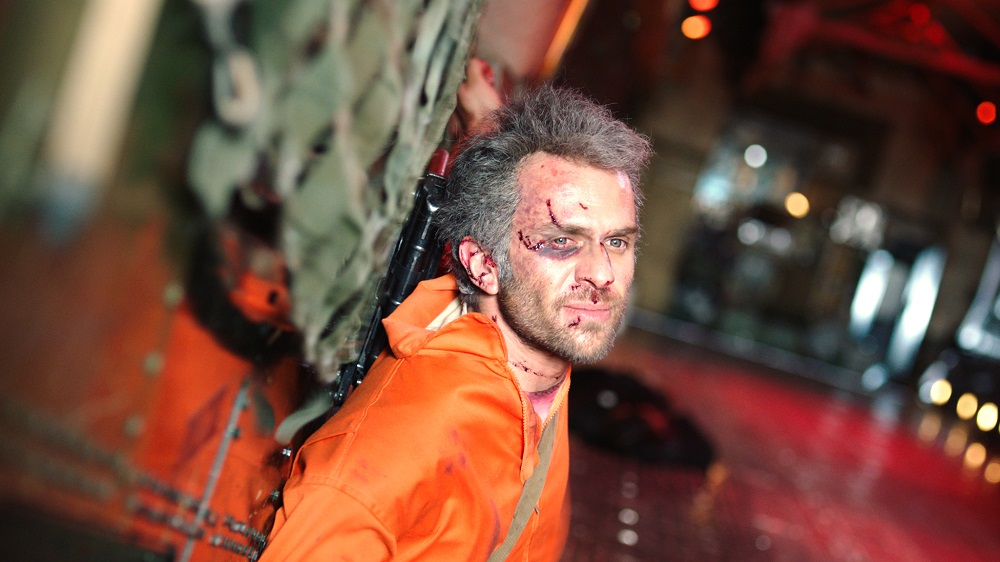
Shia Followers has conducted an interview with Robert Fantina, a pro-Palestine activist, to discuss the recently released movie, Damascus Time, and other regional issues.
“Damascus Time portrays extremist groups that purport to act in the name of Islam as the brutal, unstable and disunited organizations that they are,” Mr. Fantina said.
Damascus Time is a drama movie by Ebrahim Hatamikia, Iranian director. The movie is about an Iranian pilot and his son as co-pilot, whose plane are seized by ISIS forces in Syria while carrying a cargo of humanitarian relief supplies to people in a war zone.
“Anyone with any knowledge of Islam knows that these groups in no way represent that religion,” he added.
Here’s the full transcript of the interview:
You have described Damascus Time as an exceptional movie which deserves the Academy Award for Best Picture. Could you elaborate on why the movie is so good?
Robert Fantina: There are many qualities that make a movie good, but more that make it exceptional. A good movie entertains, and takes the viewer away from his or her own reality, and shows the viewer something new and unknown. An exceptional movie does all that, but also teaches difficult truths, and cuts through the sanitized lies that the media generally tells, to instruct the viewer about the reality lived by a distant population.
‘Damascus Time’ accomplishes all this. Very few viewers in Europe and the Americas have visited Syria, and only know it from what they hear on corporate-owned news stations, which have an agenda far removed from peace, justice and democracy. The movie will take these viewers vicariously from the comfort of their homes, and bring them to the horrors of terrorism as experienced by Syrians.
Additionally, the main character, Ali, is a reluctant hero. It is never his goal to be heroic; he only seeks to help his fellowmen who need the kind of assistance he is uniquely qualified to provide.
These components, along with spectacular and realistic scenes of war, are among those that take this movie far beyond the mediocre, and make it memorable.
One of the most important issues in the Muslim world is the distortion of Islam by extremist groups. How does the movie address this issue?
Robert Fantina: Damascus Time portrays extremist groups that purport to act in the name of Islam as the brutal, unstable and disunited organizations that they are. The movie shows that there is no compassion or humanity in the members of these extremist groups, and no consideration of justice. Anyone with any knowledge of Islam knows that these groups in no way represent that religion. The terrorists in the movie are shown in sharp contrast to those Muslims who treat prisoners with compassion, and sacrifice themselves for the good of others. This latter depiction is a realistic view of Islam; the former is not.
You’ve said: “Evidence today is far more than sufficient to indicate that the United States has supported ISIS in various parts of the world.” Would you please expand upon this point?
Robert Fantina: The United States has a long and ugly history of supporting terrorists around the world, and its support of ISIS is no exception. In 2014, Garikai Chengu, a research scholar at Harvard University said this: ISIS “…is made-in-the-USA, an instrument of terror designed to divide and conquer the oil-rich Middle East and to counter Iran’s growing influence in the region.”
Seumas Milne, a columnist and associate editor at The Guardian, wrote in June of 2017 that the British government “…cooperated with the CIA on a “rat line” (secret back channel into Syria) of arms transfers from Libyan stockpiles to the Syrian rebels in 2012 after the fall of the Gaddafi regime.” These ‘rebels’ are U.S.-supported terrorists.
In addition to direct funding, the U.S. left vast amounts of weaponry in Iraq following its bloody and illegal invasion and occupation of that country, much of which fell into the hands of ISIS.
The U.S. government is committed to upholding the racist, apartheid regime of Israel, and is using ISIS as one means of doing so.
ISIS has been losing ground in the region. What role have the top regional players played in this regard?
Robert Fantina: The success of the Syrian government in regaining control of much of the country from U.S.-supported terrorists could not have been accomplished without the assistance of its allies, mainly Russia and Iran. Those two countries have been steadfast in their support for Syria, and in helping to alleviate the horrendous, U.S.-caused suffering of the Syrian people.
Russia has long been a global powerhouse, and used both military and diplomatic means to assist the Syrian government. Iran, rapidly growing in power and influence in the Middle East, has consistently supported the Syrian government in its attempts to restore peace and order to that nation.
It is important to note that even when the U.S. recently bombed Syria in response to an alleged chemical attack that all objective evidences indicates was done not by the Syrian government, but by U.S.-supported terrorist groups, it was careful not to bomb any Russian or Iranian facilities. Government officials of the U.S., a country that has always been dangerous but is possibly more so now that it is in decline, at least recognized that by bombing Russia and/or Iran, they would be starting a war the consequences of which would be devastating for much of the world, including the U.S.
All indications are that Syria can continue to rely on assistance from its two powerful allies.
As an anti-imperialist activist, how do you evaluate the imperialist ambitions of the U.S. and its ally, Israel, in today’s Middle East?
Robert Fantina: Israel seeks complete hegemony in the Middle East, and due to the campaign contributions of U.S. lobbies that support Israel, the U.S. government is striving to assist Israel in that goal. Currently there are dozens of U.S. military bases in the Middle East, many of them surrounding Iran, a country which U.S. officials declare, incredibly, is a source of terrorism, when it is the U.S. that causes and supports most of the terrorism on the planet today. The U.S. has been at war for at least 224 years of its history; Iran has not invaded another nation since 1798.
The U.S. has long sought to order the world to its liking. To accomplish this it has overthrown democratically-elected governments, launched illegal wars and killed an estimated 20,000,000 people since World War II. No other nation can match this record of carnage.
In the Middle East, the U.S. has destroyed Libya and Iraq, and is attempting to do the same to Syria. At the same time, it gives Israel $4 billion annually, more than it gives in foreign aid to all other nations combined. This, the U.S. government hopes, will keep Israel strong, and other Middle Eastern nations weak. Yet this strategy, although somewhat successful thus far, is destined to fail. Other nations, and the United Nations, are increasingly critical of the U.S.’s imperial goals, and Israeli apartheid, and are opposing them more and more. And Iran’s growing power and influence is another check on the U.S.’s brutal ambitions.
U.S. President Donald Trump is now threatening to withdraw the U.S. from the Joint Comprehensive Plan of Action (JCPOA), despite the declaration of the other nations involved that Iran is in complete compliance. Withdrawing from the JCPOA will further damage both the U.S.’s international reputation, and its relationship with most of its allies.
The increasing isolation of the U.S. and Israel is beneficial for not just the Middle East, but the entire world.
Robert Fantina is an activist and journalist, working for peace and social justice. He is the author of ‘Essays on Palestine.’

